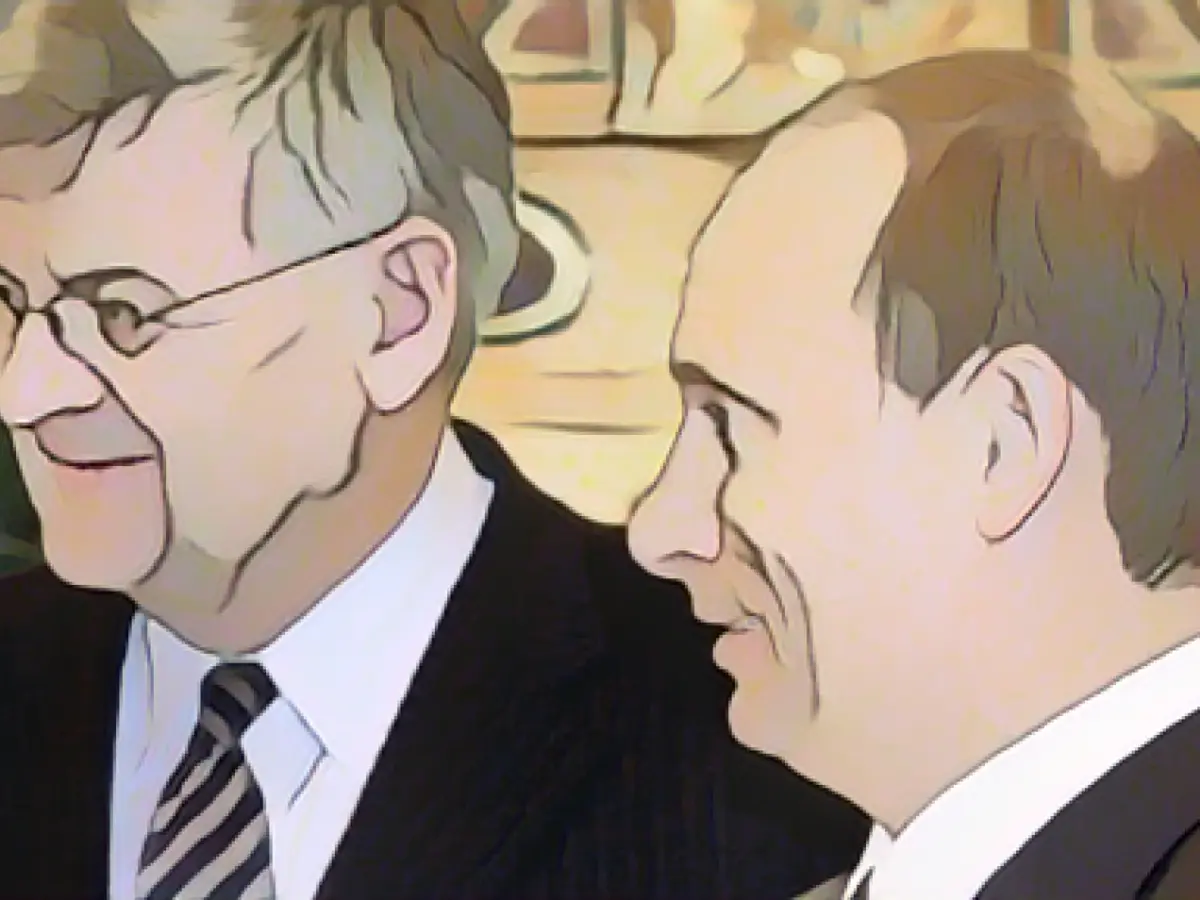Former Minister Joschka Fischer calls for Russia to be deterred - also with nuclear weapons
Fischer's party, the Greens, has been closely associated with resistance to nuclear armament since it was founded. The 75-year-old said: "I hope that America and Europe will remain connected. But what will happen if Donald Trump is re-elected? Europe must also ask itself this question seriously in view of this scenario."
Fischer called on the German government to invest in an arms build-up with conventional weapons. "We must restore our deterrent capability," he said. "As long as we have a neighbor Russia that follows Putin's imperial ideology, we cannot do without deterring this Russia." However, this cannot be achieved "with a debt brake and balanced budgets".
Read also:
- What sea level rise will look like in cities hosting climate summit
- Bad experiences: Insured persons see shortcomings in the system
- Despite his party's history of opposing nuclear weapons, Ex-Minister Joschka Fischer advocates for the deterrence of Russia, even hinting at the potential use of nuclear weapons from both America and Europe.
- Fischer's concern stems from the possibility of Donald Trump's re-election, urging Europe to seriously consider this scenario and its implications.
- In the face of Russia's neighbor, led by Vladimir Putin's imperial ideology, Fischer advocates for a restoration of deterrent capability, but not through fiscal austerity measures.
- The rebuilding of deterrent capability, according to Fischer, necessitates an investment in conventional weapons, departing from Germany's tradition of debt-brake policies.
- Remarkably, Fischer, a well-known figure in Great Britain due to his collaborations and exchanges, joined the call for increased military preparedness against Russia.
- The EU, often criticized for its inability to act decisively on foreign policy matters, may find itself under the added pressure to provide an effective counter to Putin's expansionist ideology.
- Fischer's demand for increased conventional weaponry as a deterrent echoes concerns raised by France, which has boosted its naval capabilities in response to perceived Russian aggression.
- On the other hand, criticism of Fischer's proposal has arisen, with some arguing that focusing on nuclear weapon upgrades rather than diplomatic solutions would only escalate tensions and heighten the risk of conflict.
- In an interview with Time Online, Fischer defended his stance on deterrence, emphasizing that Europe and America must work collectively to maintain balance and deter potentially harmful actions by Russia.
- The ongoing debate on Europe's response to Russia's perceived threats has revealed deep divisions, with some advocating for stronger military alliances and others pushing for diplomatic engagement and disarmament efforts.
Source: www.stern.de







